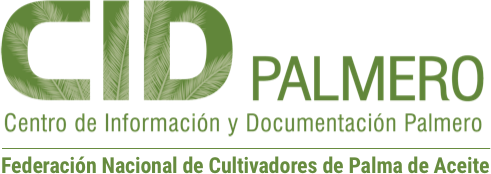A Geo-political Perspective of Colombia Based on its Regional and International Environment
Publicación:
Revista Palmas; Vol. 31 Núm. 2 (2010); 104-110
0121-2923
Revista Palmas; Vol. 31 Núm. 2 (2010); 104-110
0121-2923
Abstract
This article proposes an agenda for the internationalization of the Colombian economy, independently of whether the FTAs negotiated with the United States and the European Union are ratified or not, although they are both considered highly relevant. It proposes creating bold strategies to venture into Asian-Pacific markets with greater security, having first undertaken actions to improve the competitiveness of national industrial sectors. It describes the current threats and opportunities in Colombia's bi-national relationships with its main trading partners. It also outlines the outlook for the oil palm industry in the short, medium and long term, and warns that its future depends more on its own efforts to improve internal competitiveness than on any government incentives it may obtain. En este artículo se plantea una agenda de internacionalización de la economía colombiana, independientemente de que se ratifiquen o no los TLC negociados con Estados Unidos y la Unión Europea que, no obstante, se consideran de especial relevancia. Se propone crear estrategias audaces para incursionar en los mercados de Asia-Pacífico con mayor seguridad, previo el emprendimiento de acciones para mejorar la competitividad de los sectores productivos nacionales. Se describen las amenazas y las oportunidades existentes en las relaciones binacionales con los mayores socios comerciales de Colombia y, además, se esbozan las perspectivas del renglón palmero en el corto, mediano y largo plazos, y se advierte que su futuro depende más de su propia reacción para mejorar la competitividad interna, que de los incentivos estatales que pueda obtener.
This article proposes an agenda for the internationalization of the Colombian economy, independently of whether the FTAs negotiated with the United States and the European Union are ratified or not, although they are both considered highly relevant. It proposes creating bold strategies to venture into Asian-Pacific markets with greater security, having first undertaken actions to improve the competitiveness of national industrial sectors. It describes the current threats and opportunities in Colombia's bi-national relationships with its main trading partners. It also outlines the outlook for the oil palm industry in the short, medium and long term, and warns that its future depends more on its own efforts to improve internal competitiveness than on any government incentives it may obtain.
Palabras clave:
globalización
seguridad alimentaria
gestión ambiental
política ambiental
tratado de libre comercio
Colombia
geopolítica
globalización
seguridad alimentaria
gestión ambiental
política ambiental
tratado de libre comercio
Colombia
geopolítica



